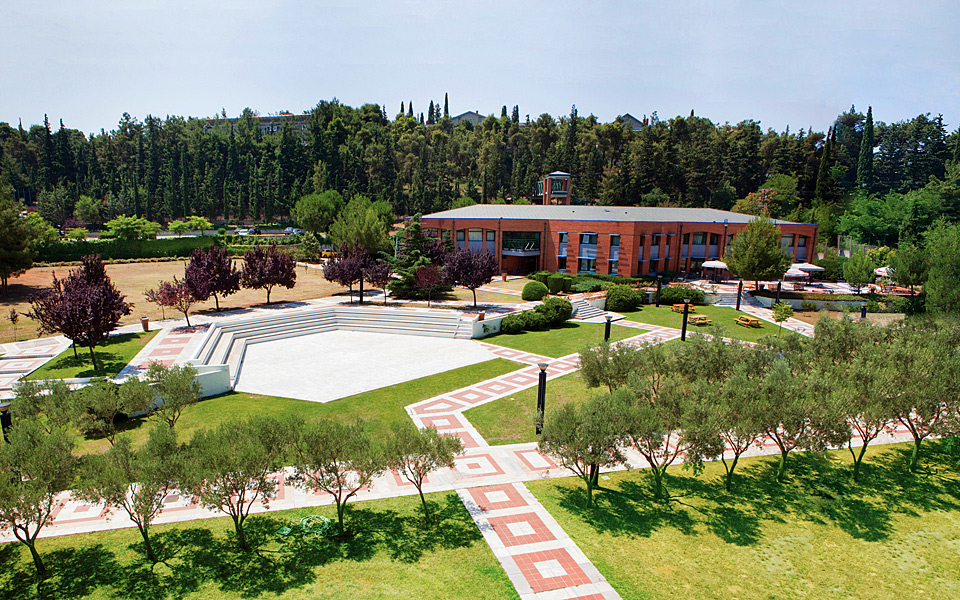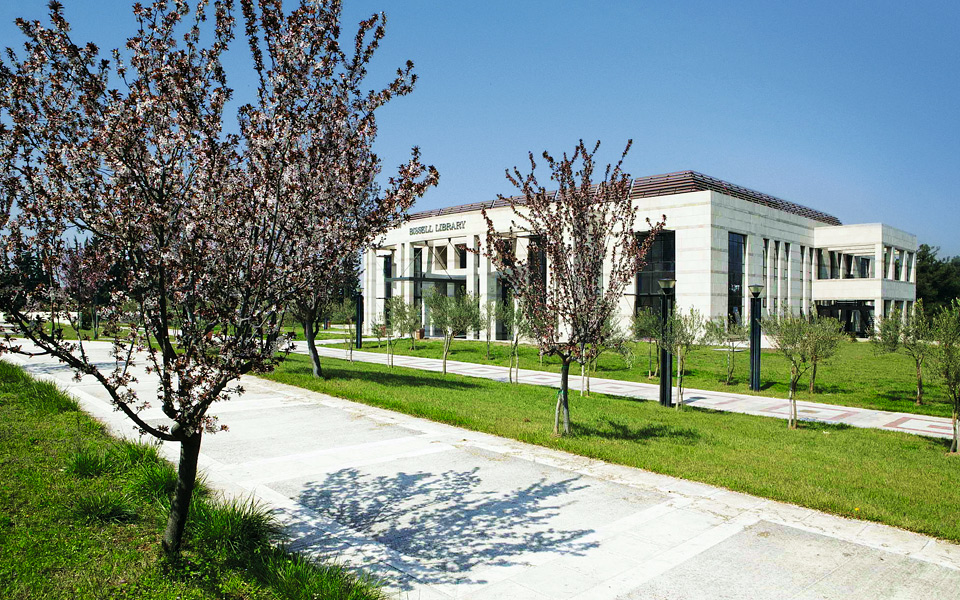Although the campus of the American College of Thessaloniki (ACT), part of Anatolia College, was unusually quiet on a recent visit – it was the Greek Orthodox Easter break, after all – I couldn’t help wishing that I could go back in time begin student life here. In actual fact, this may well not be that farfetched a thought given that the college relies, to great degree, on alumni donations and, as a result, offers extremely generous scholarships. A quarter of the student body benefit from an annual fees waiver of between 30 and 100 percent thanks to scholarships.
This non-profit educational institution was established by American missionaries in 1886, in Merzifon, Turkey, before being relocated to Thessaloniki courtesy of Greek statesman Eleftherios Venizelos following the Asia Minor Catastrophe, or mass expulsion of Greeks from Anatolia in 1922.
Everything at the college campus, from the historic Macedonia Hall building to the ultra-modern Bissell library, seems tailor-made for individuals determined to gain an education and succeed in life.
A tour of the campus offered by officials during our visit was not only intended to underline the college’s educational worth and offer a greater understanding as to why this institution has become a major attraction for students throughout southeastern Europe. Important news also needed to be announced. As of this coming September, the college will offer a set of programs on tourism and hospitality, at both undergraduate and postgraduate levels, that will include professional training and practical experience.
The initiative comes as a timely development for a country that has been severely affected by the ongoing recession but where the tourism sector has been an exception. It has stood firm and resolute as a strong industry amid the crisis, offering hope for an economic recovery. By introducing its tourism-related studies, this leading educational institution promises to offer exactly what the tourism sector needs. Besides radiant smiles, the maintenance of principles, diligence and all the other qualities required by the tourism and hospitality sector’s hard-working personnel, the educational initiative will offer advanced theoretical training, shape professional mindsets and provide effective practical experience throughout Greece, in tourism-sector enterprises supporting the college’s initiative.
“ The initiative comes as a timely development for a country that has been severely affected by the ongoing recession but where the tourism sector has been an exception.”

Resulting from two years of intensive preliminary work and research conducted at 500 hotels, the ACT’s tourism studies program is designed to meet the demands of a challenging, ever-changing and highly competitive market, where the norm has been for individuals to enter at the bottom rung of the sector, as an assistant waiter, and gradually ascend the sector’s hierarchy for promotion to managerial-level status. Besides arranging practical experience in actual working conditions, the college program also offers other comparative advantages, these being outward perspective, international cooperation and attractive tuition fee costs.
Conducted in English, the program will offer a two-year undergraduate course at the college’s Thessaloniki campus, followed by studies at world-renowned institutions. Students will have the choice of either pursuing a one-year program at the Cesar Ritz and Hotel Institute Montreux in Switzerland or a two-year course at St. Thomas University in Miami, Florida, which is renowned for its tourism studies course. Importantly, ACT students will pay the same tuition fees abroad as they would in Thessaloniki, which are three to four times less than those in the foreign institutions.
Backed by the local Sani Resort and Ikos Resorts, and enjoying the strategic partnership of consulting firm Deloitte Greece, which will offer professional tourism sector guidance through presentations and seminars on current issues and challenges concerning the tourism industry, ACT’s tourism course will strive to meet the real needs of the local tourism sector. In the words of Stavros Andreadis, chairman of Sani SA, the course will result in the “development of high-standard personnel able to provide the level of services expected by visitors to our country.”
“Over the next few years, Greek tourism will have a much greater need for investments in personnel rather than buildings and other infrastructure.” concluded Andreadis.
“Over the next few years, Greek tourism will have a much greater need for investments in personnel rather than buildings and other infrastructure.”












